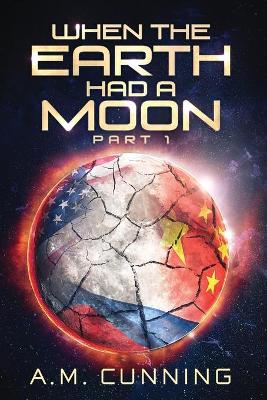Reviewed by Quirky Cat on
You know that saying, ‘don’t judge a book by its cover’? Well, this book is pretty much the reason why that rule exists. Had I based my decision to read this book or not solely on the cover of this book (as opposed to the description of it), I never would have given it a chance, and I would have lost out on a really good science fiction read. If you’re feeling a craving for a good not-so-old-fashioned space novel, then considering giving this one a try; it’s got mystery, conspiracy theories, science, and a moon base all rolled into one. What more can a girl ask for?
I honestly really enjoyed this book; I’ll admit there were times where I didn’t agree with the science, and that annoyed me slightly, but never enough to actually put me off from the book. I feel like that’s saying something. I do feel a bit bad that When the Earth Had A Moon released just a few months before Artemis came out, as I feel like that one probably drew a lot of attention that way. It’s worth noting that while both books are about people living in a moon base, they’re both about as different as they can get from one another (and for the record I enjoyed both).
What I particularly loved about this novel was that there was a little bit of everything; we have the moon base (obviously) and the science involved on it (fusion experiments being the primary subject, but also identify rocks and other particles found on the moon), intrigue and a conspiracy (what happened to the shuttle? And why are the Russians so determined to investigate the moon base? Are their theories correct?), mystery and secrets (I feel like secrets on a base as vulnerable as the one on the mood probably isn’t a smart idea), and there’s a very human element as well, compounded by the ideas of loss and betrayal.
Sometimes I have trouble getting into novels written about characters in space – I feel like the authors spend so much time focusing on the outside elements that they forget to take the time to flesh out their characters. Cunning did not make that mistake – the main perspective, Rex is a kaleidoscope of emotions and thoughts. He’s the perfect viewpoint for us, as he knows enough about what’s going on to identify when something isn’t as it should be, but he’s also emotionally compromised in the loss of his lover and friends, allowing us to see how dangerous secrets in space can be.
There’s a lot that happens in this novel; one disaster occurs before the novel even starts (a Russian shuttle that had been intended to travel to Mars gets destroyed), the others are more of a series of events slowly building up to the conclusion. With characters being dead before the book even starts, it’s made clear to us that the stakes are high, which is a polite way of warning us. Trying to figure out how the puzzle pieces fit together, and who was guilty/lying was quite the challenge, and frankly one we needed Rex to help us out with a little bit. Even then theres a lot of assumptions and few real answers – it’s hard to be sure of anything when there’s no physical proof.
When the Earth Had a Moon does leave us in a slightly cliff-hanger like situation, with us unsure if Rex and the rest of the crew will be able to get back to Earth. Even if they do success, we’re unsure about what will happen to Rex, he’s literally in enemy hands. So needless to say I’m a little bit anxious to see what happens next, as I’ve become very invested in Rex and his wellbeing. Here’s hoping the second book comes out shortly!
For more reviews, check out Quirky Cat's Fat Stacks
Reading updates
- Started reading
- 22 November, 2017: Finished reading
- 22 November, 2017: Reviewed
